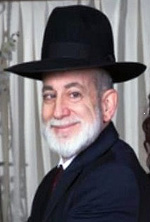By Rabbi Yaakov Marks

SAN DIEGO –The Torah (Exodus 23:6-11) lists a number of laws that pertain to judging the disadvantaged:
- “Do not pervert the judgment of a poor person in his disagreement
- Distance yourself from falsehood
- And do not take a bribe because a bribe blinds the eyes and perverts the words of the righteous
- And do not oppress the stranger because you understand the spirit of the stranger because you were strangers in the land of Egypt
- And for six years you will plant your land and harvest your crops
- And in the seventh year you will not work the land or harvest it and the disadvantaged from amongst you shall be allowed to eat from it.”
The Torah uses the prefix “and” to connect all these laws into a set of rules for a judge or anybody who has dealings with a disadvantaged person. These rules are extremely pertinent, especially when a person in a superior position of wealth and social standing is dealing with someone who is poor and underprivileged.
Many commentators are bothered by this list of laws. All these laws pertain to a person’s ability to make a proper decision and to give honorable treatment of the disadvantaged with the singular exception of “And for six years you will plant your land and harvest your crops.” How does planting for six years and leaving the land fallow in the seventh have any connection to a person’s ability to judge properly? Why would G-d require such an extreme act of a whole nation: not planting and harvesting for a complete year every seven years? How does this help people appreciate what they already know? Our ancestors were slaves in a strange land and under terrible duress!
The Sefer ha-Chinuch, a work which systematically discusses the 613 commandments of the Torah and was published anonymously in 13th century Spain written by a father to his son upon reaching Bar Mitzvah. states that the root of this Commandment is to set in our hearts and to help us mentally visualize the Oneness of G-d and his creation of the world in six days and that on the seventh He rested. G-d controls and owns the world; this should directly impact our behavior regarding our treatment of other people. Do we really need this extreme and repetitive commandment to teach us this lesson?
In the book Ethics of our Fathers (Chapter 3:9) it says, “Everyone whose actions are greater than his intellectual knowledge, his intellectual knowledge will thrive. Anyone whose intellectual knowledge is greater than his actions, his intellectual knowledge will not endure.” Clearly, understanding and knowing something without putting it into action is useless. Rabbi Israel Lifschitz (1782–1860), a leading rabbi, said in the Tiferes Yisrael – a well-known commentary on the Mishnah – (note 59) that our internal physical desires will overcome us like an animal and will eventually cloud and pervert our knowledge. Just knowing alone is useless unless we act over and over again until our good habits become stronger than our bad desires. Most of a person’s decisions are formed through habit.
G-d, Who knows the psyche of a person, understood that by repeating six days of work and one day of ceasing from work, six years of work and one year of stopping work, repeated over and over again ingrains within us the understanding that G-d is in control; no matter how much money or prestige we may accumulate, every human being is equal and should be treated as such. This should ingrain within us the proper attitude and behavior, overcoming our physical desires. This is the core for success; to do this, we will thrive. Yes, it might be hard at times and certainly inconvenient, but the results are well worth it. A life of excellence!
How many times have we heard people say, “I know I should lose weight. I plan to.” “I will start eating better when things calm down.” “Exercise is definitely important, and I am going to start.” “I understand my lifestyle will probably lead to health problems if I don’t improve. Someday I will!” Someday is not on the calendar! If we don’t take the lesson to heart and start acting on ‘I know’, not only will we not obtain good habits, but, as the Tiferes Yisroel said, we might even start clouding and perverting our ‘I Know’ to validate our bad habits.
May we be blessed with the strength to put our knowledge into action and develop the good habits that will lead us in a life of excellence. May we merit to have the perseverance to put in the work and time to change our ‘I know’ to ‘I AM!’.
*
Rabbi Marks is a certified health coach who may be contacted via ahealthyrabbi@gmail.com.